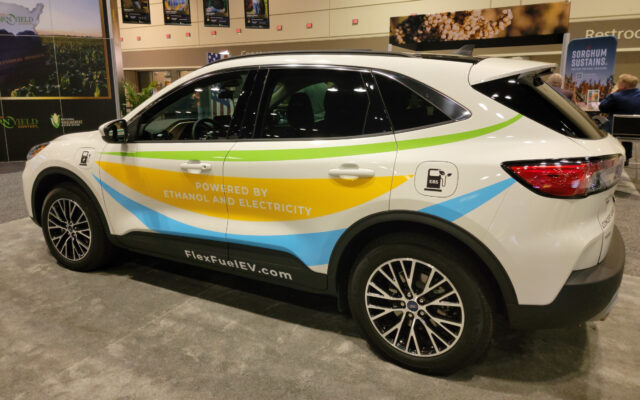Ethanol Backers Disappointed With EPA’s Reaffirming Preference For EVs

Supporters of biofuels reacted sharply to the EPA’s release Wednesday of tailpipe emissions standards, saying that the new standards rely too heavily on electric vehicles. In a statement, the Renewable Fuels Association says that the announced standard, which would apply to sedans and light- and medium-duty vehicles from model years 2027 through 2032, was not the best way to accomplish the administration’s goals of reducing pollution and greenhouse gas emissions. RFA President and CEO Geoff Cooper said that the standards assume that electric battery vehicles are zero-emission vehicles, which he calls false, and added that the standard would discourage manufacturers from pursuing other technologies including flex fuel vehicles.
Corn groups warned that the pivot away from biofuels would damage the rural economy. Missouri Corn Growers Association CEO Bradley Schad said in a statement that: “We’re quickly approaching a point of no return when it comes to tomorrow’s transportation options. Unless action is taken in the courts or Congress, automakers and energy providers will be forced to enact these unrealistic regulations.” The National Corn Growers Association cited economists at the University of Nebraska in their response, suggesting that the resulting drop in corn demand could lead to a permanent 50 percent decrease in the price of corn, costing the top five corn-producing states well over 100 billion dollars in farmland value.
EPA says their new standard aims to reduce carbon dioxide emissions by 7.2 billion pounds over the next 30 years, along with 36,000 tons of nitrogen oxides and 150,000 tons of volatile organic compounds. The agency estimates that the air pollution reductions from these standards will provide $13 billion in annual health benefits, in addition to a net reduction in consumer fuel and maintenance costs of $6000 over the lifetime of a new vehicle. However, Iowa Republican Senator Chuck Grassley criticized the price tag, citing the Congressional Budget Office’s projection of a $224 billion increase to the federal deficit caused by higher electric vehicle tax credit claims and reduced gas tax revenues.





